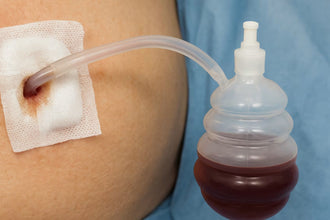
Why It's Important to Know What's In Your Supplements
Why It's Important to Know What's In Your Supplements
Nowadays, everyone is trying to be healthier, and many people are using supplements to help with this. With more people interested in supplements than ever before, it's become really important to talk about what exactly is in these products.
Knowing the ingredients isn't just for the curious; it’s something everyone has the right to know so they can make smart choices about their health.
The Need for Being Open About What's in Supplements
Being open about what's inside supplements is a big deal. It helps people feel safe and trust what they're taking. Unlike medicines, supplements don't have as many rules about them.

This can lead to products on the shelves that might not work as promised or could even be unsafe because of hidden harmful stuff listed as "proprietary blends." When companies tell you exactly what's in their products, you can pick the ones that match your health needs and what you eat.
How to Understand What’s on Supplement Labels
When you look at a supplement bottle, the label is your first clue about what's inside. But reading these labels can be tricky. They often use hard words, make claims that are too good to be true, or hide details on purpose. Here’s how you can figure out if a supplement is telling you everything:
- Check for Exact Amounts: Good products tell you how much of each thing is in there, rather than lumping everything under "proprietary blend."
- Look Up Ingredients You Don’t Recognize: If there’s something in the supplement you’ve never heard of before, a quick search online can show you what it does and if it’s safe.
- Make Sure Claims Are Real: If a supplement says it’ll do wonders for your health, it should have real science or research to prove it. Keep an eye out for references to studies.
By getting familiar with these steps, choosing the right supplements becomes easier and safer.
| Term Often Seen on Labels | What It Means | Why It's Important |
|---|---|---|
| "All-natural" | Implies ingredients are derived from natural sources. | Does not guarantee safety or effectiveness; important for those seeking minimally processed supplements. |
| "Clinically proven" | Indicates some level of clinical research has been conducted. | Consumers should seek out the actual studies for verification; ensures claims are backed by scientific evidence. |
| "Non-GMO" | No genetically modified organisms used in the product. | Important for consumers looking to avoid GMOs for personal or health reasons. |
The Role of the FDA
The Food and Drug Administration (FDA) helps keep us safe, especially when it comes to what we eat, like vitamins and health boosters. But, it's interesting to note that they don't check these supplements the same way they do with medicine.

Supplements can be sold without needing a thumbs up from the FDA first. This is news to a lot of people! The FDA steps in mostly if a product is unsafe or makes false promises about health benefits. Knowing what's actually in our supplements is super important for keeping us safe.
| FDA Regulation | Its Purpose | How It Affects Consumers |
|---|---|---|
| Dietary Supplement Health and Education Act (DSHEA) of 1994 | Defines supplements and regulates the market. | Provides a framework for what information must be on labels, helping consumers make informed choices. |
| Good Manufacturing Practices (GMP) | Ensures supplements are produced in a quality manner. | Reduces the risk of contamination or mislabeling, increasing safety for consumers. |
| New Dietary Ingredients (NDI) Notification | Requires companies to notify the FDA of new ingredients. | Helps ensure new ingredients have been reviewed for safety before becoming available to consumers. |
Proprietary Blends: What You Need to Know
Have you ever seen "proprietary blends" on vitamin labels? This means the company isn't telling you how much of each ingredient is in there, claiming it's a secret mix.
While this might seem special, it's usually a sign that we should pay more attention. It's hard to tell if there's enough of the good stuff in these blends or if they're just filled with extras that don't help our health. It's smarter to pick products that tell us exactly what's inside.
The Risks of Not Knowing What’s Inside
When supplement labels aren’t clear or accurate, it’s not just annoying—it can be dangerous. If we don’t know exactly what or how much of something is in our supplements, it could harm people with allergies or anyone trying to stay safe and healthy.
Bad reactions can be minor or major, but either way, better labeling would help avoid them. This need for clear labels shows why it’s so important that standards are strict.
Why Transparency Matters
Being open about what's in supplements is becoming really popular — for good reason. When we know exactly what we're consuming, we make better choices because we understand what suits our body’s needs and what doesn’t.

We’re safer because knowing everything that’s in our nutritional supplements means less chance of a bad reaction. We feel confident about quality, as companies who share detailed info are usually those who care a lot about making top-notch products.
So basically, being upfront about ingredients helps everyone—making shopping for supplements safer and smarter!
When companies are open and clear about what's in their products, it helps create a safer and more trustworthy shopping environment. This means people can feel more sure when picking products that fit their health goals.
How You Can Help Make Things Clearer
Getting more clarity from companies is something we all can help with. Here’s how you can make a difference in making sure companies are upfront about what's in their products:
- Look at Labels Closely: Get to know what ingredients are usually used and spot any unnecessary extras.
- Choose Open Companies: Support businesses that don’t hide their ingredient lists. If lots of people ask for this, more companies will start being open.
- Ask Away: If there’s something not clear on a product’s label, get in touch with the company to find out more. Good companies should be happy to tell you what’s inside.
- Tell Your Friends: Let your loved ones know why it's important to choose products wisely by understanding what they contain.
- Join the Conversation: Talk about it on social media or join groups that care about healthy living. Sharing and learning with others can spread the word even further.
















